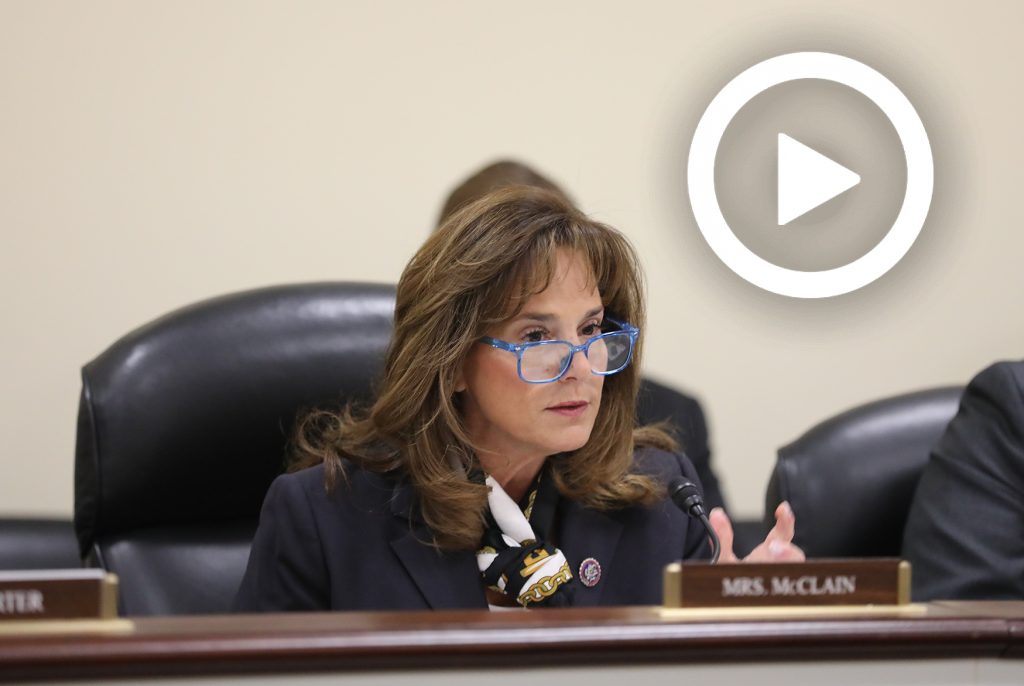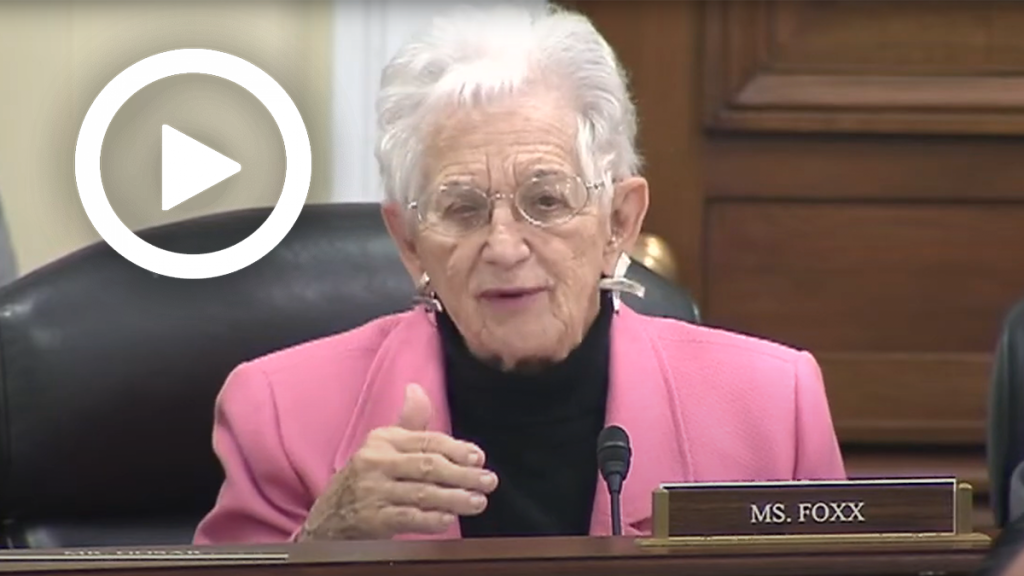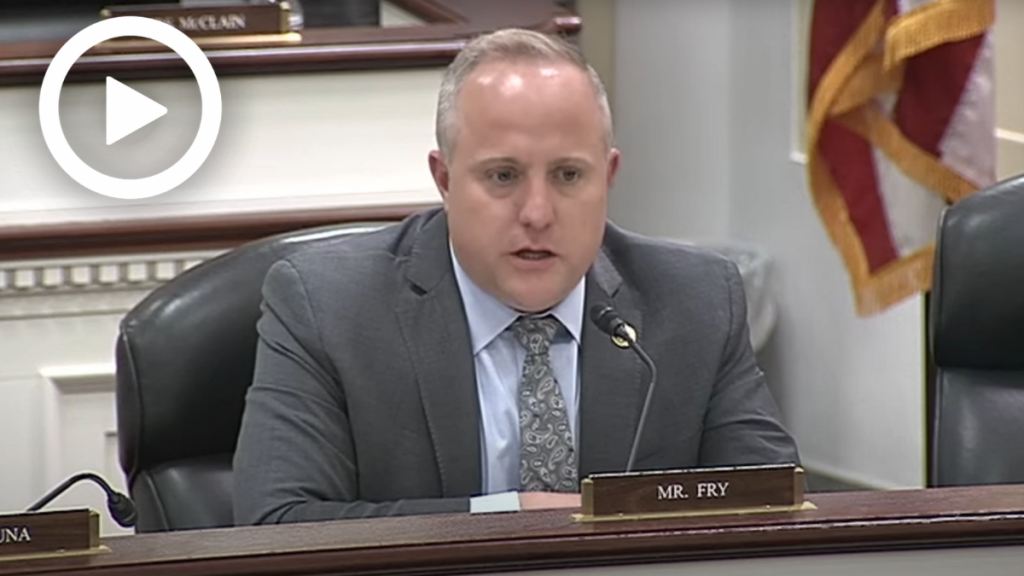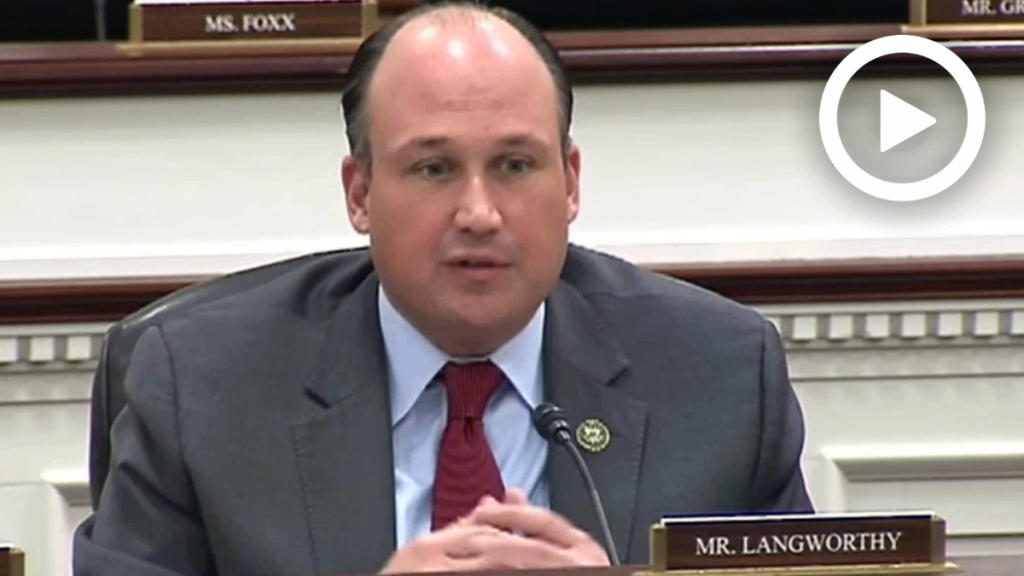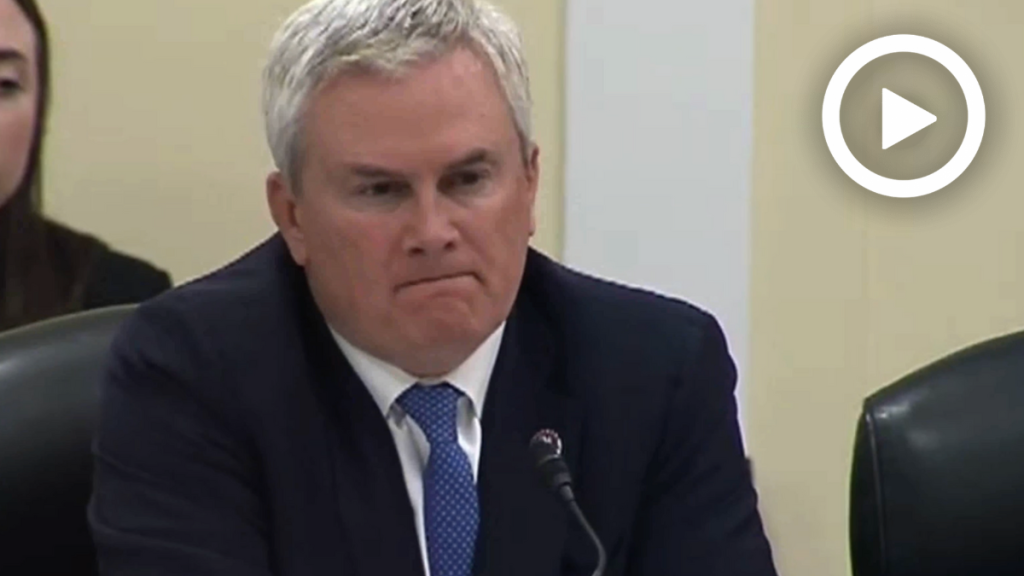Hearing Wrap Up: Biden Admin Ignored Warnings that Trillions in Spending Would Damage the Economy and Spur Inflation
Republicans Bring Oversight to the Inflation Crisis, Seek Solutions to Help the Economy Recover
WASHINGTON – The House Committee on Oversight and Accountability Subcommittee on Health Care and Financial Services held a hearing yesterday titled “Inflation: A Preventable Crisis.” At the hearing, subcommittee members asked expert witnesses how the fiscal policies pursued by President Biden, including the American Rescue Plan (ARP) and Inflation Reduction Act (IRA), have overstimulated the economy, increased inflation on Americans, and provided slush funds for Democrats’ radical agendas.
Subcommittee Republican members warned that Americans are still facing higher costs due to historically high inflation and the risk of a recession, yet the Biden Administration has ignored the damage they have done to the economy in pursuit of even more damaging tax hikes and spending.
Key Takeaways:
Despite warnings from Republicans and even former President Obama’s own economic advisor Larry Summers that the American Rescue Plan would trigger inflation, the Biden Administration and Congressional Democrats rushed through trillions of dollars in spending and fueled the highest inflation in more than half a century.
- President Biden rushed through spending in the American Rescue Plan, ignoring both warnings of inflation and data that the economy was growing.
- Dr. Douglas Holtz-Eakin, President of the American Action Forum, testified during the hearing that, “the American Rescue Plan – 1.9 trillion dollars in stimulus – was enacted in March of 2021 at a time when the U.S. economy was growing at 6.5 percent. It was plain in the data, things like GDPNow at the Atlanta Fed showed that.” He continued, “It [the ARP] was just much too big, and destined to cause macroeconomic disruptions.”
The Biden Administration doubled down on reckless spending with the misnamed Inflation Reduction Act.
- In opening remarks, Subcommittee Chairwoman Rep. Lisa McClain (R-Mich.) noted that Democrats spent billions in the IRA, even though there were still funds leftover from prior relief bills. As a result, the price of groceries increased by more than 11 percent.
Inflation has driven the massive increases in the price of groceries and energy, causing extreme stress on hardworking Americans and American families.
- Dr. Douglas Holtz Eakin testified, “We are hardly done with this episode. […] Food, energy, and shelter are still rising at 8.5 percent year over year. Go to the gasoline station, go to the grocery store, go home, and be reminded that your paycheck is nearly 10 percent less valuable than a year before.”
The Biden Administration has ignored, denied, and passed the blame for the damage it has done to the economy for far too long. It is time they are held accountable.
- Dr. John Taylor, Professor of Economics at Stanford University, warned in his testimony, “We’re still living in a high inflation era unless monetary policy actions are taken.”
Member Highlights:
Chairwoman Lisa McClain (R-Mich.) asked the witnesses whether Democrats were aware or that the American Rescue Plan would increase inflation before passing the legislation.
Rep. McClain: “Was it predictable that the American Rescue Plan would drive inflation so significantly?”
Dr. Doug Holtz Eakin: “Yes. People said so at the time, notably Larry Summers, former Secretary of the Treasury – an outstanding economist. History has given us examples just like the American Rescue Plan. In 1951, the U.S. economy was growing at 10.5 percent – quite rapid growth. Federal spending was increased by about 50 percent – that’s roughly the American Rescue Plan – two trillion on a four trillion base. Inflation jumped by six percentage points that year.”
Chairwoman McClain (R-Mich.) also noted that the Biden Administration irresponsibly tried to spin inflation as a “high-class problem,” although inflation disproportionately affects middle-income and low-income Americans.
Dr. Doug Holtz Eakin: “If you look at the median income in the United States and say, 50 percent of it is going to food energy and shelter, that’s a three-thousand-dollar tax on food, energy, and shelter at the current inflation rates. That’s a real loss in purchasing power for other purposes, because you have to devote it to those core elements.”
Rep. Virginia Foxx (R-N.C.) discussed steps Congress could take to limit inflationary spending.
Rep. Foxx: “Last Congress, I introduced the Spending Safeguard Act, which would tamp down mandatory spending increases by establishing program specific caps for new or reauthorized programs. How would legislation like this effect America’s inflation?”
Dr. Taylor: “I think it would be a step in the right direction.”
Witnesses told Rep. Foxx that it would likely take longer than anticipated for inflation to return to normal levels.
Rep. Foxx: “When do you anticipate inflation to return to pre-COVID levels, and what action should the Biden Administration, Congress, and the Federal Reserve be taking to meet that timeline?”
Dr. Doug Holtz Eakin: “…Chairman Powell addressed the National Association for Business Economics and said it would take three years to get back to the two percent target. In the interim, inflation has proved more stubborn than he had anticipated, and the terminal rate they’re going to have to get to is higher than they had anticipated, so I think it will probably take longer than anticipated.”
Rep. Russell Fry (R-S.C.) laid out how Democrats ignored warnings from Congressional Republicans, economists, and experts that the American Rescue Plan would overstimulate the economy.
Rep. Fry: “Dr. Holtz-Eakin, you previously testified in February of 2021 that the American Rescue Plan injected too large of a stimulus into the American economy. Can you elaborate on that?”
Dr. Doug Holtz Eakin: “Certainly. The bill when proposed came at a time when the weekly and monthly data we received suggested that the economy is growing quite rapidly. A good summary of this is something produced by the Atlanta Fed known as GDPNow, which sort of gives you an estimate of what the current growth rate is in the quarter for GDP. It was at six and a half percent. This was not the same as March of 2020 when the economy was falling at a rate that ultimately contracted by nearly ten full percentage points in a single quarter. It was extraordinary.
“So we are in a completely different situation, we are growing quite rapidly, and we’re getting close to full employment, we’re getting close to potential GDP and there’s no reason to have a nearly two trillion-dollar stimulus. It’s way too big for whatever problem you might have imagined remained.”
Rep. Nick Langworthy (R-N.Y.) warned that rather than acknowledge the economic harms they have perpetuated, the Biden Administration is shifting the blame for inflation to the invasion of Ukraine, oil and gas producers, and everyday Americans who drive non-electric vehicles.
Rep. Langworthy: “Do you think that President Biden’s recommendation to Americans that one of the ways to reduce energy prices is for them to go out and buy an electric car. Do you think that that’s a legitimate solution for most Americans?”
Dr. Doug Holtz Eakin: “Again, the inflation phenomenon is prices across the economy – all goods and services rising at the same time. So, picking out individual items and focusing on them, which is something people do a lot, misses the larger point. We have prices going up everywhere.”
Oversight and Accountability Chairman James Comer (R-Ky.) pointed out that now is not the time for the Fed to take a wait-and-see approach to addressing inflation. Chairman Comer also noted that there are steps Congress can take to help the Fed ease inflation and the economy recover faster.
Chairman Comer: “What would you say the most important way to fight inflation would be? What’s the silver bullet there?”
Dr. Taylor: “I think the problem is the Federal Reserve. Globally, you have the European Central Bank, you have other central banks around the world which are tending to follow the Fed to some extent as they have in the past. That’s an important thing. So the focus should be the Fed. As I mentioned, this Congress used to have policies that would require more reporting. That’s why the Fed has reported a little bit more. But that could go further.
CLICK HERE to watch the hearing.
